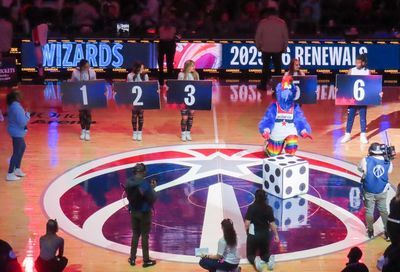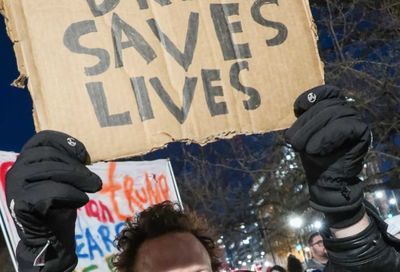Students suing over Boyertown transgender policy testify in court
Plaintiffs seek injunction to stop trans students from using locker rooms that don't match their biological sex at birth

On Monday, two of four students leading the charge against an Eastern Pennsylvania school district’s policy allowing transgender students to use restrooms and locker rooms matching their gender identity expressed their opposition to the policy in federal court.
Lawyers for Alliance Defending Freedom, which is representing all four students challenging the policy, have asked U.S. District Judge Edward G. Smith to issue an injunction that would prevent the school district from enforcing its policy.
Joel Doe, a rising senior at Boyertown Senior High School, and a female student, both testified that the school district’s policy violates their privacy and constitutes a form of sexual harassment, reports The Morning Call.
Doe testified that he was changing in the locker room one day when he saw a transgender male student, who he considers to be biologically female, changing alongside biological males for gym class. He said he quickly exited the locker room because of his discomfort, and, with several other students, approached a vice principal at the school about the situation.
Doe testified that the vice principal told him he would have to tolerate a transgender student using the same locker room as him and “make it as natural as possible.” As a result, he refused to change for gym class in the locker room, which resulted in him losing points towards his grade for physical education.
Yet even LGBTQ advocates argue that the school could have easily offered Doe his own alternative arrangements, such as a privacy curtain or the use of a restroom or other changing facility. Doe said other administrators offered him the option of a single-stall restroom, but stopped changing for gym because he had no place to secure his belongings. On cross-examination, however, he conceded that he could have used his regular school locker to store his clothes while he was in gym.
Smith did not rule on Monday, saying he would set a date for additional testimony from school district officials and expert witnesses.
He did, however, question Aidan DeStefano, a transgender graduate of Boyertown Senior High School, on what it meant to him when he was allowed to use the bathroom that matched his true gender identity.
“I felt the best that I had in a long time,” DeStefano testified.
He said he intervened in the case to try and block the injunction sought by ADF because of his concern for other transgender students who were simply trying to use the bathroom where they feel the most comfortable, without fear of being beaten up by other students or disciplined by administrators.
In many ways, the Boyertown case is the mirror opposite of another case in suburban Pittsburgh out of the Pine-Richland School District. In that case, three transgender students sued over their school’s policy restricting them from using facilities matching their gender identity, claiming it is a form of discrimination under both Title IX and the Fourteenth Amendment’s Equal Protection Clause.
In February, a federal judge issued an injunction to stop Pine-Richland school district from enforcing its policy, ruling that it violated the students’ rights under the Equal Protection Clause. Conservative special interest groups are expected to appeal that decision to the Pennsylvania Supreme Court, which is where the Boyertown case will also likely end up, regardless of how Smith rules.
All of these cases could be resolved by the U.S. Supreme Court if it takes up the case of Ash Whitaker, a Wisconsin transgender student who sued his school district for barring him from the boys’ restroom. The 7th U.S. Circuit Court of Appeals recently ruled that the policy violated Whitaker’s Title IX rights.
Several other lawsuits involving transgender students’ access to restrooms and locker rooms, in various states from Florida to Virginia to Illinois, are currently working their way through the courts.
If the Supreme Court decides to take Whitaker’s case, or another case, upon appeal, it could once and for all determine whether such policies constitute discrimination. If they do, and are overturned for that reason, the ruling would set a precedent requiring all school districts to allow trans students to access facilities consistent with their gender identity.
Support Metro Weekly’s Journalism
These are challenging times for news organizations. And yet it’s crucial we stay active and provide vital resources and information to both our local readers and the world. So won’t you please take a moment and consider supporting Metro Weekly with a membership? For as little as $5 a month, you can help ensure Metro Weekly magazine and MetroWeekly.com remain free, viable resources as we provide the best, most diverse, culturally-resonant LGBTQ coverage in both the D.C. region and around the world. Memberships come with exclusive perks and discounts, your own personal digital delivery of each week’s magazine (and an archive), access to our Member's Lounge when it launches this fall, and exclusive members-only items like Metro Weekly Membership Mugs and Tote Bags! Check out all our membership levels here and please join us today!






















You must be logged in to post a comment.